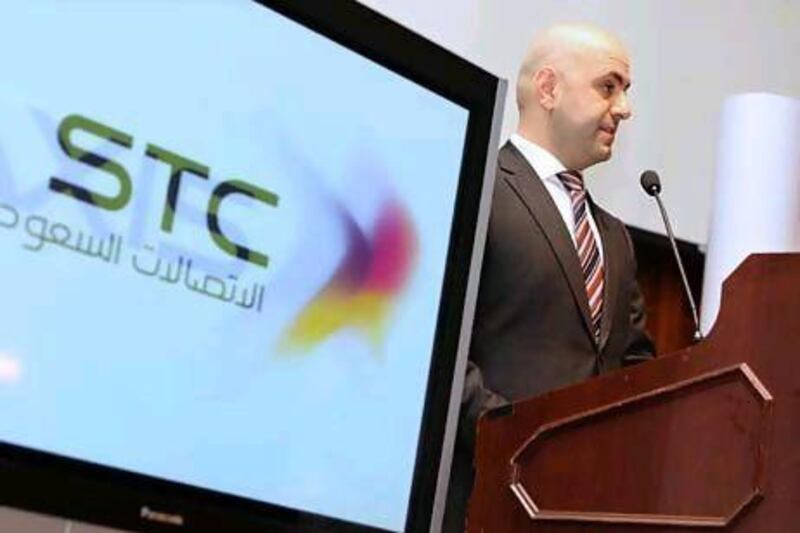Saudi Telecom Company (STC) says a target to boost foreign operations to half of its total business is still realistic, despite the operator's failed bid to enter the Syrian market.
The company last year reported revenue of 56 billion Saudi riyals (Dh54.8bn), with about 32 per cent of that coming from outside Saudi Arabia.
It had aimed to expand the overseas contribution to 50 per cent by the end of next year but has faced difficulty because of scant acquisition targets and few telecommunications licences being offered.
Despite this, the 50 per cent target is still achievable, said Ghassan Hasbani, the chief executive of international operations at STC.
"We're not shying away from that. It depends on the opportunities available," said Mr Hasbani.
"By the end of 2013, there is no reason why STC should not be able to diversify its revenue." Mr Hasbani stressed that the 50 per cent target was a "guidance" rather than an absolute aim.
STC is Saudi Arabia's largest telecoms company, and has 160 million customersacross the Middle East, Asia and Africa.
Early last year, STC raised its stake in the Indonesia operator Axis to 80.1 per cent from 51 per cent. Its other foreign holdings include a stake in Oger Telecom, which owns part of Turk Telekom.
STC last month said it stopped actively pursuing a bid for a mobile operating licence in Syria.
An auction of the country's third mobile licence has been suspended because of the anti-government protests in that country.
"We just closed the file on that process," said Mr Hasbani.
He said that not winning the Syria licence did not harm the company's targets for international expansion.
"All greenfield situations take longer to achieve significant revenues.
They take a bit of time to reach critical mass," he said.
STC is open to acquisitions to help to boost its foreign operations to 50 per cent of its total business, Mr Hasbani added.
"A target like this would require inorganic growth. And inorganic growth is subject to the availability of the right opportunities," Mr Hasbani said.
"Currently there is no specific market that we are looking at. Most of the markets in the Middle East have potential for growth. The question is at what price, and what is the opportunity." The Middle East's telecoms industry was tipped for consolidation last year, but several high-profile deals fell through.
These include Etisalat's US$12 billion (Dh44bn) bid for a controlling stake in the Kuwaiti operator Zain, and a separate sale of Zain's stake in a unit in Saudi Arabia.
Mr Hasbani said he was hopeful that there would be a pickup in mergers and acquisitions in the Middle Eastern telecoms industry.
"We will probably see some new acquisitions and licences coming out as the appetite of the market starts to increase," he said.
Gulf telecoms companies have come under increasing pressure to maintain revenues, because of high infrastructure costs, greater competition and lower revenues from traditional voice calls.
Mr Hasbani said there was now "a reversal of the stagnation trend" in telecoms companies' revenuesbecause of the greater popularity of internet services.
Last week, it emerged that STC's chief executive, Saud Al Daweesh, had resigned.
Mr Hasbani declined to comment on the reason for his departure or his likely successor.
twitter: Follow our breaking business news and retweet to your followers. Follow us





